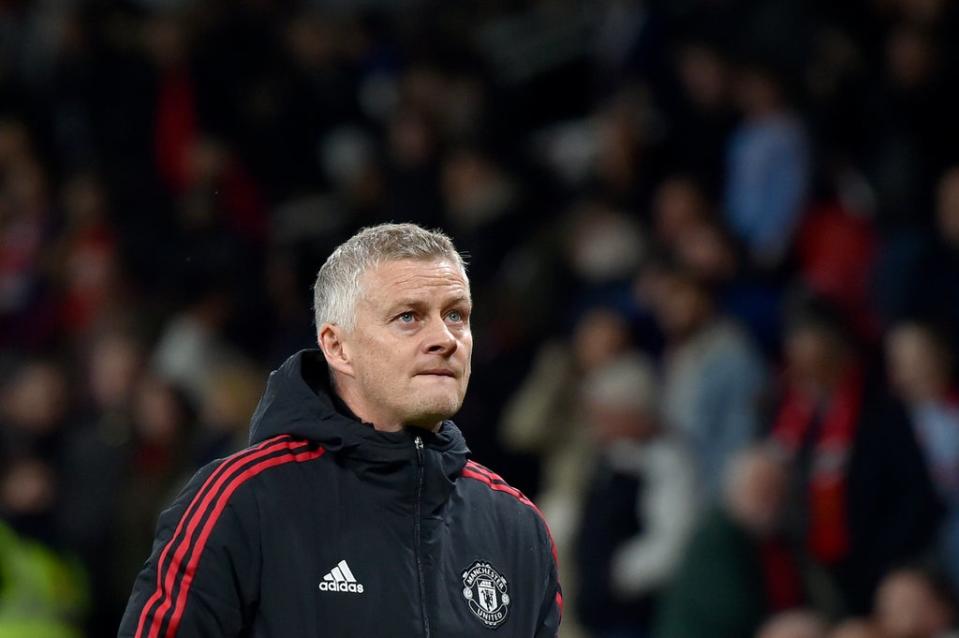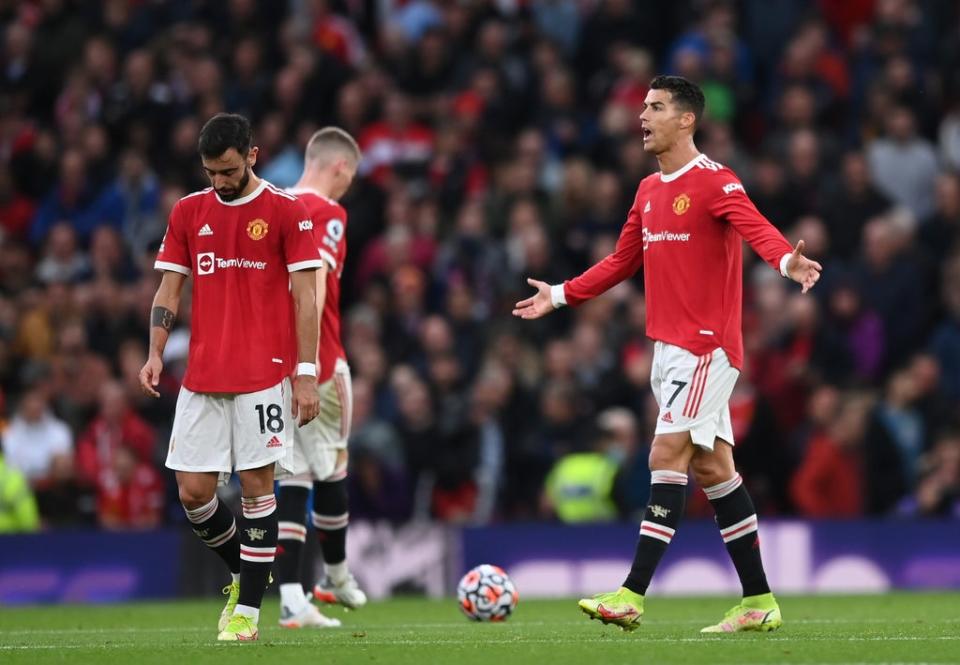Ole Gunnar Solskjaer circling the drain after Manchester United lurch to new nadir

“If that’s the start of something big...” Ole Gunnar Solskjaer wondered to himself only a few days ago, reflecting on yet another trademark Manchester United comeback against Atalanta in midweek, trailing off in the middle of his answer as he sometimes does. “That’s what we hope.” It was the start of something big, in a way: Liverpool’s biggest-ever win at Old Trafford.
They say that you can turn the corner so many times you end up going full circle. United have had so many turning points under Solskjaer that they have spun entirely off their axis, violently whirring and spinning into oblivion. And even if the usual statements of support follow from his superiors in the aftermath of this historic defeat, it is hard not to think that Solskjaer is circling the drain.
For if this is not the end, it certainly looks a lot like it. Before today, it was difficult to pinpoint the nadir of Solskjaer’s tenure. There have been more than a few disappointments, several debacles too. Going out of the Champions League group stages? The 6-1 thrashing at the hands of his predecessor? The no-show at the Europa League final in Gdansk last May? All were bad. This was worse.
Solskjaer once had a game plan which worked in these types of encounters. United accepted their limitations and played much like a team outside the so-called ‘top six’ would against superior opponents, sitting deep and breaking at pace. Liverpool were held here by such an approach in the two seasons during which they challenged for and eventually won the title. Whether or not it was style befitting a club of United’s resources, it occasionally worked.
Even that appeared beyond Solskjaer’s players today, who were ripped open in the absence of any coherent plan. Much has been made of the lack of pressing in United’s forward line following the arrival of Cristiano Ronaldo. What has gone relatively unnoticed is that Bruno Fernandes has attempted to make up for Ronaldo’s reluctance all on his own. His commendable desire to set the tempo and win the ball high up can have the adverse effect of pulling the entire system out of shape, as was the case for the first.
Fernandes was only the first line of defence, though. It was the last line of United’s defence - one that has kept a single clean sheet in 21 games - that was repeatedly found wanting. Harry Maguire and Luke Shaw’s European Championship hangovers have still not cleared, as they would be the first to admit, but it is mystifying how two players who were among the best in Europe in their positions last season could be as disorganised as they were on the first, second and fourth.

It would be wrong to highlight any one player, any one moment or any one of Liverpool’s five goals for what was a collective, systemic breakdown. As their fiercest, most hated rivals began to rack up the score towards the end of the diabolical first half, you wondered whether United were at risk of being on the end of a record Premier League record defeat. The jeers at the break were the loudest heard at Old Trafford for a United performance in years, if not decades.
United’s ill-discipline was just as striking as the ineptitude of their performance. Another referee may have punished Cristiano Ronaldo more severely for a petulant tussle with Curtis Jones just as the half came to a close. Having watched that from the substitutes’ bench, Paul Pogba took inspiration, lasting only a quarter-of-an-hour, seeing red for a dangerous challenge on the sublime Naby Keita. The applause for Pogba from some inside Old Trafford as he trudged off was equally baffling.
By that stage, Mohamed Salah had already become the first visiting player since Ronaldo Nazario to score an Old Trafford hat-trick - the first time Liverpool had scored five on this ground since 1936 - and the only surprise was that he and his team-mates did not add to that tally further. You wonder if in the home dressing room at full time, in one of his more Pollyannaish moments, Solskjaer will tell his players to look at the positives. They went down to 10 men and only lost the second half 1-0, after all.
There are no positives, though. And for all the drama of the Atalanta win, it was perhaps the first time that Solskjaer’s hopes of United using victory as a watershed moment rang truly hollow. Every time United roll the boulder up the mountain, it rolls back down again. There are no turning points anymore. There have not been for a while now. The only relevant question to ask as the final whistle sounded was whether Solskjaer is past the point of no return.

 Yahoo Sports
Yahoo Sports 